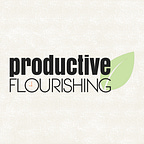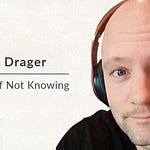Topics We Explored:
As the year comes to a close, we have a natural inclination to look back on what’s happened over the past year.
Many of the Productive Flourishing readers and listeners have been asking questions about ways to do annual reviews or think about assessing the year.
Angela and Charlie talk through the annual review worksheet (now a full mini-guide; see below), and share several tips on reviewing your year, as well as self-care during the holidays.
Links and Resources Mentioned in This Episode:
Episode 108: How to Align Your Goals and Projects with Your Seasonal Energy
Annual Reflection Mini-Guide (part of a paid PF subscription)
Thanks for Listening!
Subscribe to Productive Flourishing on Apple Podcasts to get all the latest episodes delivered straight to your preferred mobile device. This is the perfect option for listening to the show in the car, on the subway, or while you’re working out. Plus, you won’t have to fuss with figuring out how you’re going to listen.
Episode Timestamps
[4:55] - A lot of time during the holidays, people have tension between being productive, spending time with family, and being in the season. Being with family and reflecting is a way of being productive, and it’s important to make time for those things.
[7:10] - When you start thinking about the year in review, always start with the celebration of the things that you’ve done. Think about the top three things from the year that you want to remember. Charlie encourages people to separate their personal and professional lives into separate buckets to give both the credit they deserve.
[10:47] - One of Angela’s biggest celebrations from this year in her professional was developing her new coaching practice, Clarity Coaching. This has gotten her back into the work that she loves the most, helping someone realize what they’re able to do. Her biggest personal celebration is the way she’s invited boundaries into her life in her relationships with people.
[14:45] - Charlie’s biggest celebration in his professional life is his book deal! He’s under contract to write a book tentatively titled Start Finishing: How to Go From Idea to Done. They’ve also experienced a lot of growth with Productive Flourishing. In his personal life, his biggest celebration also had to do with boundaries, and taking a step back from some things to avoid burnout. This allowed him to get clear about the expectations and intentions for himself, and he was able to reclaim a lot of time.
[19:10] - Do this reflection not only for yourself, but think about whether there is someone else in your life that can do this reflection as well so you all can celebrate each other. If you’re doing this with a team, make sure you explain why those things are important to you, because that’s where the real strengthening will happen.
[22:20] - The next question on the worksheet is what three things challenged you the most over the past year. People often see a tight relationship between the things that challenged you professionally and the things that challenged you personally.
[24:54] - The next question evaluates the top three lessons learned or reaffirmed. This is really pushing you towards a growth mindset. The goal is to not have to keep learning the same lesson over and over again. Later on in life, you may be learning the same thing, but it’s usually at a higher level.
[27:03] - Charlie talks about the four steps of the Wayfinding Academy. The first step is knowing where you are, the second step is knowing where you’re trying go, the third step is having a road map between where you are and where you’re trying to get, and the fourth step is knowing how to get back on track when you get off-course.
[28:30] - When thinking about the top three goals for the coming year, there are two different types. One is quantitative goals, and the other is more milestone or baseline goals. As you are thinking about goals, it’s important to get to a place where you can be sure you did it or you did not do it. This is also true for personal goals, so try to avoid vague goals that won’t motivate you.
[31:35] - The next question to think about is what needs to change to be able to achieve those goals. Sometimes nothing needs to change, but for most people, something has to change. You may have to change your day-to-day focus to achieve your overall goal, or you may have to drop some things to make the time for a new focus.
[37:10] - The next question asks what sprints, strategic projects, or experiments you could run to help you achieve those goals. Charlie goes over what each of these look like, and how you can utilize them to starting working on your goals. Sprints keep you in the project long enough that you’re still interested, but doesn’t drag it on.
[42:08] - Moving through the worksheet, the next question encourages you to identify someone who will support you through the sprints, projects, and experiments. Whenever you have a “how” problem, find a “who” solution - there’s probably someone who has been in your shoes or can help get you moving forward. It also helps build your success team.
[44:15] - The last major question on the worksheet is ‘When will you reach out to the people who can support you?’ Giving people advance notice of when you will need their help will increase their willingness and ability to provide support, and it also gives you enough time to pay it forward for that particular person. Ask them what you can do to support them in the meantime.
[48:00] - In real time, these questions take about 15 or 30 minutes to sit down and work through. Charlie shares some final reminders for working through the sheet. 1. Remember to start from a place of celebration before getting into the challenges. 2. Continue to think about what affects your personal life and professional life discreetly, while keeping in mind that they often overlap. Treat your life like your work - carry over what works in your job into your personal life. 3. Be thinking about what needs to change, and focus on the internal changes more than external changes. 4. Think about who you are going to reach out to, and reach out to them early.
[51:10] - Self-care is tied into all of these, especially looking at your goals, victories, and challenges. For this specific time of year, be sure to take some time to slow down and allow yourself the opportunity to reflect.















